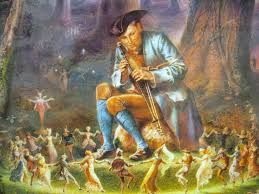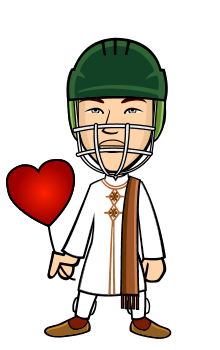IN full view of Wetaota, upon an open terrace half-way up the side of the hill in the midst of virgin Big Woods, there were grouped in an irregular circle thirty teepees of the Sioux. The yellowish - white skin cones contrasted quite naturally with the variegated foliage of September, yet all of the woodland people knew well that they had not been there on the day before.
Wetaota, the Lake of Many Islands, lies at the heart of Haya Tanka, the Big Mountain. It is the chosen home of many wild tribes. Here the crane, the Canadian goose, the loon, and other water-fowl come annually to breed undisturbed. The moose are indeed the great folk of the woods, and yet there are many more who are happily paired here, and who with equal right may claim it as their domicile. Among them are some insigni (leant ami obscure, perhaps only because they have little or nothing to contribute to the necessities of the wild man.
Such are the Little People of the Meadow, who dwell under a thatched roof of coarse grasses. Their hidden highways and cities are found near the lake and along the courses of the streams. Here they have toiled and played and brought forth countless generations, and few can tell their life-story.
' Ho, ho, kola!" was the shout of a sturdy Indian boy, apparently about ten years old, from his post in front of the camp and over-looking the lake. A second boy was coming towards him through the woods, chanting aloud a hunting song after the fashion of their fathers. The men had long since departed on the hunt, and Teola, who loved to explore new country, had already made the circuit of Wetaota. He had walked for miles along its tortuous sandy shores, and examined the signs of most of the inhabitants. There were footprints of bears, moose, deer, wolves, mink, otter, and others. The sight of them had rejoiced the young hunter's heart, but he knew that they were for his elders. The woods were also full of squirrels, rabbits, and the smaller winged tribes, and the waters alive with the finny folk, all of which are boys' game. Yet it was the delicate sign-language of the Hetunkala, the Little People of the Meadow, which had aroused the enthusiasm of Teola, and in spite of himself he began to sing the game scout's song, when Shungela heard and gave him greeting.
" What is the prospect for our hunt to- day?" called Shungela, as soon as his friend was near enough to speak.
"Good!" Teola replied, simply. "It is a land of fatness. I have looked over the shores of Wetaota, and I think this is the finest country I have ever seen. I am tired enough of prairie-dog hunts and catching young prairie-chickens, but there is everything here that we can chase, kill, or eat."
Shungela at once circulated the good game news among the boys, and in less time than it takes an old man to tell a story all the boys of the camp had gathered around a bonfire in the woods.
" You, Teola, tell us again what you have seen," they exclaimed, in chorus. "I saw the footprint of every creature that the Great Mystery has made! We can fish, we can hunt the young crane, and snare the rabbit. We can fool the owl for a night-play," he replied, proudly.
"Ho, kola, washtay! Good news! good news!" one urchin shouted. Another ran up a tree like a squirrel in the exuberance of his delight. " Heye, heye, he-e-e-e!" sang an- other, joyously.
" Most of all in number are the Little People of the Meadow ! Countless are their tiny footprints on the sandy shores of W'etaota! Very many are their nests and furrows under the heavy grass of the marshes! Let Shungela be the leader to-day in our attack upon the villages of the Little People," suggested Teola, in whose mischievous black eyes and shaggy mane one beheld the very picture of a wild rogue.



